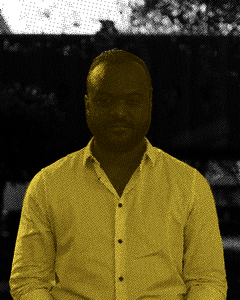
Investing in education. Do students have a seat at the table?
Theoretically it looked good
Students got input on how to spend the millions saved from the abolition of the basic grant. Folia editor Laura ter Steege travelled from Amsterdam to Groningen and Nijmegen and found nothing but chaos, stubborn administrators, and a lack of transparency. Overigens zijn aan de TU/e de leden van de studentenfracties over het algemeen wel tevreden over de inbreng die zij kunnen leveren als het gaat om de besteding van de basisbeursgelden.
In the fourth instalment of this series, we investigate how much input students have in improving the quality of education that the abolition of the basic grant was supposed to lead to.
A little over a year ago, I started to realise something. Students on representative advisory board have practically no input. Not even when that input has been recorded by law.
When I was reading up on sources for our research project on the basic grant millions, I came across a report that was critical of the changes. The conclusions were shocking. How to spend all the money that was generated by students losing their basic grants had only been discussed a handful of times. At other universities of applied sciences and research universities, students had to make do with a short explanation. Other students hadn’t been told anything.
Several months later my suspicions are confirmed when a colleague points out an interesting reaction to our first research article. ‘Here at the Radboud University, those funds have been misspent as well’, the reaction under the article at voxweb.nl says. It was posted on June 24, 2020, at 5.05 p.m., by someone named Bas van der Zandt. In his reaction, he says he was on a student faculty council and that he was involved in deciding how to spend the millions from the basic grant.
He writes that everything was done ‘on the up and up’, but that the expenditure plans never should have been approved, since ‘it was wrongly suggested that the advisory board was sufficiently involved’.
How is this possible? Students were forced to sacrifice their valuable basic grant for these investments. How can they just be left out? Isn’t this whole thing about improving their education?
No worries
I know from personal experience how valuable the basic grant was. I was fortunate enough to start studying in 2013, the second to last generation of students to have a basic grant. As a new student, I immediately signed up at a student association, moved out as soon as I could, and I didn’t have to worry about getting into immense debt.
Because I lived on my own, I received 280 euros a month. It wasn’t enough to pay rent, but it was a start. With my parents’ help and the money I earned from odd jobs, I managed to get through most of my student years without having to borrow any money.
I wonder how things would have differed if I didn’t have access to the basic grant. Would I have stayed with my parents? Would have still gone out drinking every Tuesday night during my first year? I don’t know. What I do know, is that the basic grant brings peace of mind.
I think it’s only fair that students should get a say in how to improve the quality of their education if it’s being funded by the abolition of their basic grant. The past year, I investigated the issues that enthusiastic students on advisory bodies run into and what role administrators play in this. And, perhaps more importantly, whether things have improved.
Chaos
It’s a Wednesday in September, and I have a meeting with the former chair of the student council. We meet up at one of the colourful tables at student pub Crea in the Amsterdam city centre. As we warm our hands on our mugs, Naomi Appelman, who’s now a PhD candidate in information law at the University of Amsterdam, summarises her year on the council in a single word: Chaos
When she became chair in 2015, one thing was clear: the educational quality needed immediate improvement. The first batch of students who weren’t receiving a basic grant had already started their classes. But no one knew what to do. The advisory boards didn’t know, the UvA didn’t know, the government didn’t know.
They decided to try and make the best of it. However, it wouldn’t do for a single centralised party to decide how to improve education at individual faculties. Students and lecturers should have a say in their own education. Besides, the faculties themselves would know what was needed. So far, so good. As a biomedical sciences student, I wouldn’t have known how to improve the quality of education at, say, the law faculty.
Discussions
After several discussions with the board, which had already been prepared by her predecessor, Naomi and her council managed to compel the university to let students at the faculties have a say in the pre-investments. The deans and the faculty councils would write a plan and include any and all input from the others.
It was a great idea in theory, but the reality turned out different. The deans at some faculties write their own plans, without talking to anyone else. Nevertheless, Naomi is happy with her and the council’s efforts to involve students in the pre-investments. They could have done better, sure, could have done more. But without their efforts nothing would have happened at all.
No campus in china
I travel to Groningen in late September, where I find out how the relationship between advisory bodies and administrators can vary by institute.
"There’s a lot of inequality when it comes to power, knowledge, and the time people have to devote to it. On top of that, administrators have more experience", says Jasper Been. He and his student friends founded critical student party Democratische Academie Groningen (Democratic Academy Groningen, or DAG) in an effort to protest the commercial nature of the university. He’s published reports that expose wrongdoings. He personally showed that the proposed UG campus in the Chinese city of Yantai was being funded through Dutch tax funds. The campus falls through.
But it turned out much harder to make any changes while on the university council. ‘The board decides what happens and all the council can do is change a period into a comma ere and there’, he says of his experience of being on the University of Groningen’s university council in 2017 and 2018.
The board repealed
When the council announced they wanted to change the way the funds were distributed, the board simply repealed their right to consent. Apparently, it’s fine to pretend that students have a say in things when the board can just decide to change to rules and cut the council out of the process.
Jasper does think students currently have more input than ever on how the millions from the basic grant are spent. But that doesn’t mean the students or the lecturers actually decide what kind of investments are being made. ‘The board of directors has the right of initiative, so they come up with a proposal. It’s then up to the students and lecturers to make changes to that.’
He’s not sure every student understands the full scope of what’s needed to improve educational quality. He personally thinks as much money as possible should go to hiring new lecturers, since there is such a shortage. Other students advocate for extra electricity outlets or sustainable sandwiches.
But DAG has fought the concept of more outlets since day one. They were fighting for a true improvement of educational quality. Unfortunately, the only thing the advisory body managed to get were those extra outlets. They did announce the news triumphantly on their website.
"I mean, it was still a victory", says Jasper, laughing uncomfortably. "Considering the tiny impact we had in the council, we should probably just take it."
Vastly overestimated
Later that afternoon, a visibly exhausted Izaäk van Jaarsveld sits down in one of the brown leather chairs at grand café Time Out near the Grote Markt in Groningen. He sits back and rests his right ankle on his left knee. "I’ll have a tonic please", he says to the waitress. After interning in a class full of toddlers, the teaching student carved out a little bit of time to talk to me.
He looks down at himself and explains why he is wearing a light pink hoodie. "I normally wear white button-down shirts, but I can’t right now. Everything gets dirty: there’s snot and paint everywhere. This is dirty too, but I don’t mind."
This past academic year, Izaäk chaired the advisory board at the Hanze University of Applied Sciences and he was closely involved in how the millions from the basic grant were spent. To his disappointment, he has to admit that he vastly overestimated his fellow students’ commitment. "If I’m honest, I’d say that 60 to 70 percent of students don’t even remotely care what the money is spent on."
The Hanze organised no fewer than twenty-one meetings asking for students’ and lecturers’ input, but the student body was clearly underrepresented at these meetings. At times there was only one student, as opposed to eight staff members and a board member. And that was all. Nevertheless, he does think the students brought some interesting points to the foreground that wouldn’t have been discussed otherwise, like the need for extra student psychologists and electrical outlets.
If I’m honest, I’d say that 60 to 70 percent of students don’t even remotely care what the money is spent on
Electrical outlets are an improvement in educational quality? I’m reminded of Jasper Been’s remarks from earlier that day.
But Izaäk tell me about the changes that have taken place at Hanze. A few years ago, the institute had dedicated computer rooms, but these days, everyone has to provide their own laptop. It’s called BYOD: Bring Your Own Device. "If there’s thirty students in a room with only six outlets, twenty-four of those students have a problem."
Alright, he has a point. The lack of outlets would get in the way of quality education. I can remember how bad the battery on my laptop was when I was a student.
It quickly becomes clear that Izaäk and Jasper disagree on more than just the use of outlets; they also have different views on how to approach the board. While Jasper is more reactionary, Izaäk prefers a good relationship with the board. It’s something he would advise his successors to cultivate, too, as it means that students at the Hanze have more input than those at other institutes. "If we ask for the right to consent to a new proposal, it’s granted to us nine out of ten times."
Not that the council at the Hanze is involved in all new plans, because the rule that the UG has applies here, too: the board proposes policy, and the council can make adjustments. But when it came to how the millions from the basic grant were spent, the Hanze made an exception, and Izaäk has had input right from the start.
The council was also able to give feedback two months before the deadline, and they were able to make changes to the plan towards the end. "The final proposal did have a few things that I wanted to see differently. But there was nothing that I didn’t think deserve the money."
Big difference between institutes
Advisory bodies don’t always have a lot of time, resources, or members to perform their tasks. As chair of the entire university of applied sciences council, which consisted of nine staff members and nine students, Izaäk van Jaarsveld had to make do with 0.3 FTE.
Three months ago at TU/e the members of the student factions in the university council pushed for an extension of the number of hours they have at their disposal. They have eight hours a week for this job, one working day, and according to them that isn’t enough to perform their duties in a proper way. “On average the members of the student factions spend some 24 hours a week reading documents, becoming well acquainted with the relevant information, in fact-finding related to certain subjects, and preparing and attending the various meetings,” said Naomi Amsing, at the time a faction member for Groep-één.
At the University of Amsterdam, the biggest university in the Netherlands, five of the fourteen students in the central student council have forty hours a week to devote to their council work. The other nine students have only twenty hours. There are usually sixteen staff members in the central work council.
Imbalance
In the car on the way home, I keep going over the imbalance between administrators and students on advisory bodies.
Students who aren’t used to negotiating are suddenly facing experienced administrators. This is a recurring issue: with the student council changing every year, they keep having to invent the wheel. Students keep having to figure out how to cultivate the right relationship with the administrators.
Besides, the administrators know a lot of smart tricks to get their way. Important issues are often tabled early in the year, when the new students haven’t read up on everything yet. They rarely get enough time or support to fully understand all the documents.
External experts
The past years, students’ input at universities of applied sciences and research universities has improved - on paper, at least. This is partially due to external experts that make sure the universities stick to the quality agreements. If the advisory body hasn’t been involved in a plan, that plan will not be approved, which means the institutes miss out on the millions from the basic grant. In the first round of applications, six out of the fifty-four plans were rejected because the students hadn’t been properly involved. The institutes will be given another chance to submit their proposal.
However, this new approach is not without its flaws. The Intercity Student Consultation (ISO) published a report in 2018 that said that students still aren’t sufficiently allowed to propose their own initiatives and that the centralised and decentralised councils often aren’t in tune with each other. Administrators also pressure advisory bodies to agree with them, for instance by threatening that the school will miss out on the millions from the basic grant if they don’t.
Pride and disbelief
All this leaves one important question unanswered. What went wrong at the Radboud University? Why was Bas van der Zandt - the student who left a message on the Vox article before the summer holidays - so fiercely opposed to approving the quality plans?
I meet with Bas at the Nijmegen campus on a sunny but chilly Wednesday in October. He rushes down the dimly lit hallway in the basement of the Elinor Ostrom building, which houses the offices of student organisations like the Batavierenrace and student union AKKU. He apologises for his meeting running late and quickly finds us somewhere we can talk quietly. "There’s a meeting supposed to take place in this room in ten minutes", he says, reading a form on the door, "but that will probably be happening online." We decide to take our chances.
We sit down at an appropriate distance from each other in the low-ceilinged room and remove our face masks. Occasionally leafing through a large stack of papers he brought in, Bas tells me about his experiences in the faculty student council with a mix of pride and disbelief.
Rookie
He was a complete rookie when he took a seat on the science faculty’s student council in 2017. To prepare the new members, the old council invites Bas and his fellow council members on a scouting weekend. They’re informed as much as possible about all the important documents and procedures. After that, they’re on their own.
When Bas receives important documents, he writes his remarks in the margins and asks any and all questions he has, thinking he’s doing the right thing. His predecessors told him the council needs to do something about something called the quality agreements, but the faculty board hasn’t provided any information on this. One afternoon, he decided to drop by the faculty board’s offices to make his inquiries. "Quality agreements? I haven’t heard anything about that", the director of operations tells him. He’d have to ask about that at a more central level.
Flooded
Later that year, a committee is founded to decide what to spend the millions from the basic grant on, with Bas representing the faculty student council. All students and staff members can submit proposals. Lecturers would like to experiment with new teaching methods. The students hardly submit anything. After much deliberation, the committee picks the best ideas from the sixty proposals on how to spend the 28,000 euros the faculty will be given in 2018.
Then the academic year ends and it’s time for Bas to pass on the torch to the new council.
On Wednesday, September 12, 2018, the plans are presented in a public meeting. Someone in the audience remarks that some of the money appears to be missing. The vice dean of education says the chart that explains this wasn’t included because there wasn’t time. After the meeting the presentation, which does include that chart, is sent to everyone involved, including Bas.
He carefully reads the entire document. Surely this can’t be right? The new council should be informed of this as soon as possible; they cannot be allowed to consent to this proposal. He’s tried to explain the issue to his successors more than once. But just like he was, they’re being flooded with information about various subjects. They can’t see the seriousness of the problem and do nothing.
Pre-investments
In the dimly lit room in Nijmegen where we’re sitting, Bas pulls a piece of paper with a chart from his stack of papers. "The proposal the committee submitted was on how to spend these 28,000 euros in 2018. But then I suddenly saw that the faculty had more money that was freed up from the basic grant to spend that year. They also went ahead with the pre-investments, but as far as I know the advisory bodies had absolutely no say in that. These resources weren’t discussed with the committee or the faculty student council, let alone whether they should be continued."
He slides me the document and I see what he means: in 2018, the faculty didn’t have 28,000 euros to spend because of the abolition of the basic grant, but 1.65 million!
I go over the figures again at home. That year, the council only got a say in how to spend 1.7 percent of the funds.
Involvement at TU/e
At TU/e the members of the student factions as a whole are quite pleased about the way they can provide their input on how to invest the basic student grant millions after brainstorming and discussing about it with the Executive Board. In his column published on the 29th of October 2018 Jobert Zoetbrood, at that time heading the student faction of the Eindhovense Studentenraad, stated that this money that was made available for investing in better education, was money derived from all students.
‘As such, one of our main focuses while developing the plan was that the money should really be used for the benefit of all students. This means that we did not want to see investments in excellence programs for specific groups of students or say for plans that would only apply to larger study programs’, he writes. Furthermore, he says that the money is certainly not intended for a better control of the fast growth of the university.
‘One of the most prominent focuses of this plan is an investment in small-scale and intensive education’, according to Zoetbrood. ‘This will be done by appointing more temporary staff and teaching assistants, which will allow for smaller project groups. At the same time, the permanent staff can be relieved from certain tasks, which will allow them to focus more on teaching activities. Additionally, investments will be made for experiments with Challenge-based Learning.’
He ends his column by saying that when he and the other members of the university council compare ‘these issues with other universities, we are happy that our process of establishing this plan went smoothly, which is also reflected in the TU/e being the first university of the Netherlands in which the plan for quality agreements has been approved.’
by Han Konings
Courtesy of Altan Erdogan, Henk Strikkers, and Yvonne van de Meent. Our gratitude goes out to Henk Blanken.
This is part six in a series that was made possible by the Dutch Fund for Journalism, as well as the editors from various universities of applied sciences and research universities.
On March 9 we will publish the final story in these series, in which four education experts will discuss topics like political promises, the millions of the basic student grant, how you can measure education quality and the role of co-determination in higher education.






Discussion